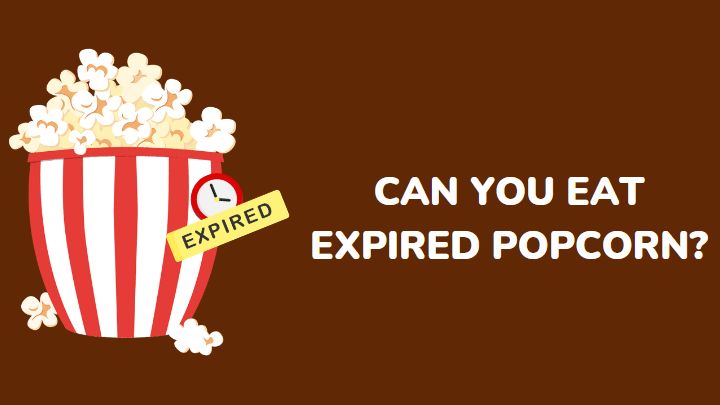Most foods have expiry dates on them but sometimes the dates may be more of a suggestion. Popcorn kernels seem to last forever. It will have anyone wonder if they ever expire and if you can eat expired popcorn.
Popcorn kernels can last up to a year or more if stored properly. It is advisable to consume popcorn before it expires because the longer you store them, the more exposed they are to insects and pests.
Nevertheless, you need to know when it is not healthy to eat expired popcorn, how to identify expired popcorn, and if expired microwave popcorn can make you sick.
How long does it take for the popcorn to expire?
Unpopped popcorn kernels have an almost indefinite shelf life. Most popcorn packages come with an expiration date of 8 months after the production date. But, you can eat expired popcorn two months after the expiry date.
The downside is that expired popcorn doesn’t pop easily and will burn while popping. This is because popcorn kernels lose their natural moisture over time. The more moisture it loses, the less appealing it is to consume.
An open pack of popped popcorn has a shelf life of one to two weeks. On the hand, an unopened pack of popped popcorn can last two to four weeks.
Popcorn is a snack that should be eaten immediately while it’s warm. For this reason, popped popcorn may not last beyond two weeks.
What will happen if you eat expired popcorn?
Popcorn is safe to eat within one or two months after the expiry date. However, the popcorn may be chewy and unappetizing.
Microwave popcorn is pre-mixed with seasoning and cooking oil. It gets stale faster than plain popcorn.
Eating expired popcorn with mold puts you at risk of food poisoning. It could cause diarrhea, stomach upset, and vomiting.
How do you know popcorn has expired?
1. Color and mold
Expired popcorn is darker than usual. Moldy kernels have black or grey spots on their hull. If you notice that the kernels have become moldy, avoid them completely to save yourself from health risks.
2. Less popping
Popcorns pop because of the moisture present in them. Once it loses moisture and drys out, it hardly pops while cooking. If you notice that half of your popcorn didn’t pop in the microwave or stovetop, it is most likely expired.
3. Smell
While plain popcorn may not smell offensive when expired, the oil from microwave popcorn smells unpleasantly after cooking when expired.
Avoid eating microwave popcorn with such a smell as they pose a serious health risk.
4. Taste
Popcorn tastes yummy and buttery after cooking. Expired popcorn on the other hand tastes bland and weird. If this is the case when you pop it in your mouth, toss it in the trash immediately.
How to store popcorn
- Keep popcorn kernels last longer in sealed airtight boxes
- Keep open boxes of popcorn away from moisture and direct heat
- Do not refrigerate popcorn
- Buy popcorn you can consume at once
FAQs
Can expired popcorn make you sick?
Yes. Moldy expired popcorn and expired microwave popcorn can cause stomach aches, diarrhea, and vomiting.
Can you eat popcorn that expired two years ago?
You shouldn’t eat popcorn that has expired beyond 2 months because it can negatively affect your health.
What can you do with old popcorn?
- Process stale popcorn into cornmeal and use it as toppings for grits
- Freeze stale popcorn and use it as a substitute for an ice pack
- Instead of buying a bean bag at a store, make yours with stale popcorn and have fun playing cornhole games
Final thoughts
To be safe, consume your popcorn before the expiry date. Popcorn is tastier when it’s fresh from the microwave or popcorn machine. Expired popcorn is chewy and unpalatable.
Microwave popcorn spoils faster because they are pre-mixed with oil and seasoning. Store your popcorn in a cool, dry place for better preservation.
Also, keep it sealed until you’re ready to eat. Reseal open bags and consume the popcorn within two days.
I hope this article helped. Thanks for reading.
Check Millenora for more articles on food shelf life and safety.

